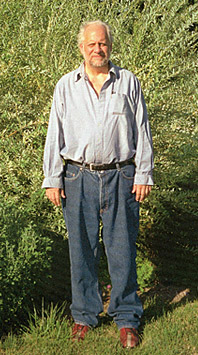E Pluribus Garden
E Pluribus Garden
Today, the Fourth of July, you, me, and our 323,995,528 fellow Americans unite to honor and celebrate our nation’s 240th birthday. We bask in a happy blend of patriotism, love-thy-neighbor friendliness, and pre-electronic fun.
Founding Father and future president John Adams anticipated the character of our jubilant annual observance: “It ought to be solemnized with Pomp and Parade, with Shews, Games, Sports, Guns, Bells, Bonfires and Illuminations from one End of this Continent to the other from this Time forward forever more.” Three Cheers for Democracy!
The Declaration of Independence, signed on this day in 1776, gives us plenty to cheer about. Described by Thomas Jefferson as “an expression of the American mind,” this exceptional decree is the fertile soil in which our democracy has taken root, and continues to grow and flourish.
Boldly proclaiming the new country’s independence from Britain, the Declaration expresses a revolutionary vision for a new kind of society, one in which all are equal, and sovereignty belongs not to a monarch or a privileged few, but to we the people, you and me. We rule.
I imagine the expression on King George’s face when he read, “We hold these truths to be self-evident. That all men are created equal, that they are endowed by their Creator with certain unalienable Rights.”
To His Majesty, these principles were neither 1) truths, nor 2) self-evident. The “consent of the governed” was not to his taste. His view? “A traitor is everyone who does not agree with me.” The upstart colonies disagreed with him.
The Declaration’s ideas are credited to our nation’s Founding Fathers: George Washington, Thomas Jefferson, John Adams, and James Madison.
Each of these brilliant men regarded himself as first of all a gardener, only secondly a politician. Amply demonstrated in Andrea Wulf’s book, “The Founding Gardeners,” the Founding Fathers’ vision of democracy was shaped by their shared passion for gardening. Thomas Paine, whose ideas so inspired them, described himself as a “gardener of ideas.”
When contemplating the upcoming election, follow the example of the Founding Fathers: think like a gardener. As you contemplate the candidates, look for a gardener. Do their views and proposed policies reflect the way of the gardener? How do their gardens grow?
Gardeners are not cited in voter demographics, yet there are over 75 million in this country, outnumbering either political party. Carrying on the work of the Founding Fathers, they merit our attention.
We are, after all, a nation of gardens. Here capitalists, socialists, libertarians, conservatives, and liberals find common ground. If made a political party—let’s call it the Garden Party—its horticultural ethos offers a welcome antidote to politics as usual.
As the election approaches, bear in mind these defining qualities of an effective gardener that the Founding Fathers epitomized. The Garden of Democracy they planted has flourished for 240 years—we should emulate them.
Down to earth
By necessity, gardeners are pragmatic, relying on the facts on the ground, rather than ideology or belief.
Planning
Gardeners are first and foremost strategists. A skillful gardener is a good planner. I have rarely seen a beautiful or productive garden that was not thought out well in advance.
Expediency
Decisiveness is second nature to a gardener. Gardeners know when to drop everything else and tend to the problem at hand. Thyme is of the essence.
Adaptable
Flexibility is the essence of diplomacy, and indispensable to a successful, experienced gardener. Since its founding, our country has consistently, if gradually, recognized and attempted to correct, flaws and imbalances. Our country’s leader needs to learn from the findings—the failures as well as the successes—from the Democratic experiment.
Resourceful
In the garden, we often lack the tools we need, forcing us to improvise. Our leaders are frequently called upon to do things beyond their presumed capacities, and the best ones show that they had them all along.
Humble
Humility has the same Latin root as humus, meaning the “earth which is beneath us.” In the garden, the arrogance of ignorance will reap you a poor harvest. As Founding Gardener James Madison wrote, “Knowledge will forever govern ignorance: And people who mean to be their own Governors, must arm themselves with the power which knowledge gives.” For gardeners, presidents, and we the voters, this truth is self-evident.
My fellow Americans, This land is your land. Vote accordingly.
A version of this article appeared in the July 4, 2016 edition of the Omaha World Herald
